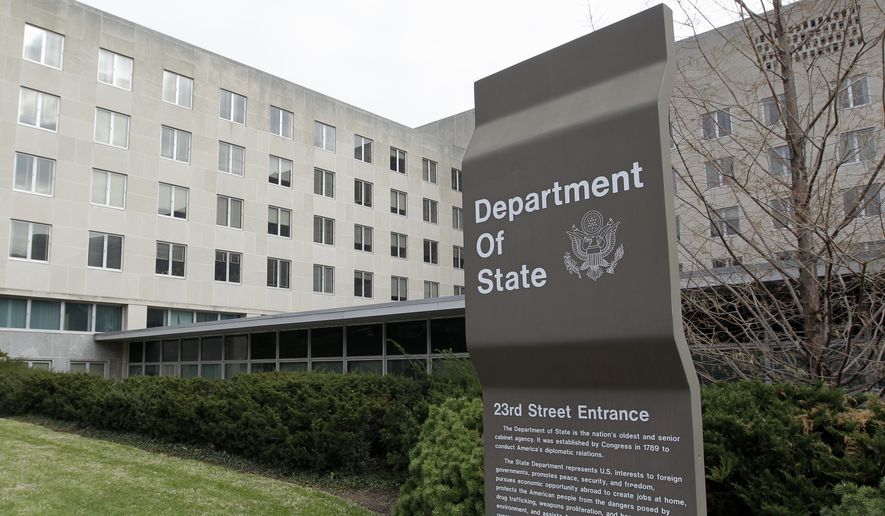OPINION:
Whether Hillary Clinton wins the White House in November or is sent back to one of her estates to recover her health, it’s unlikely that handling emails at her old shop at the State Department will ever be the same. The growing list of scandals over her misuse of electronic communications has trained a spotlight on the system’s failures that she shamelessly exploited.
Improvements are on the way to make department records more transparent, but that won’t make a difference if a future secretary of State is as determined as she was to conduct official business shielded from everyone, perhaps even from the president.
Hillary’s email scheme and the State Department’s slow-walking of requests for documents formed the subtext of a hearing by the House Oversight and Government Reform Committee last week to examine Freedom of Information Act (FOIA) compliance at the State Department. The “I know nothing” routine of Sgt. Schultz of “Hogan’s Heroes” was reprised when her aides were asked about her failure to use prescribed government email servers for official business.
She has spent the past 18 months explaining every way but truthfully why she flouted government rules and used a private home-based server for nearly all of her email communications. She admitted no wrongdoing in destroying 30,000 messages and returning only 30,000 to the State Department. James Comey, the director of the FBI, obviously concluded that discretion is the better part of employment and declined to recommend that she be charged with wrongdoing, as any other government employee in her circumstances would have been.
Patrick Kennedy, the undersecretary of State for Management, told the committee that he received several dozen emails from the secretary bearing her personal @clinton.com address during her four-year tenure, and assumed that electronic or paper copies were generated simultaneously. Clarence Finney Jr., deputy director for correspondence, records and staffing, testified he saw no red flags when Mrs. Clinton failed to obtain a department email address, since several of her predecessors had used commercial email services. The intrepid Sherlock Holmes found a key clue to solving a mystery in the dog that didn’t bark, but the overseers at State demonstrated little curiosity over the secretary’s communications that never appeared.
Nonetheless, State officials held out an olive branch to members angered by the records-keeping dysfunction at the department. Janice Jacobs told the committee that a system mandated by the National Archives and Records Administration for capturing all emails of senior officials in electronic format would be operational by the end of this year. Along with cables and memorandums, the emails will be searchable, speeding the answering of FOIA requests.
No amount of transparency will help if Washington officials and their underlings follow Hillary’s example, and hide their work on a secret server. Mr. Kennedy described the task of electronically scanning 55,000 pages of Clinton emails into digital format as monumental because she handed over only paper copies.
Mr. Kennedy is overseeing an explosion of FOIA requests that has left the department swamped with a backlog of 30,000 cases. Compliance rules require a response within 20 days but because of the backlog, the department is taking more than 500 days to answer requests. Documents pertaining to foreign governments require review for sensitive information, which can result in reclassification after the fact, a practice which Hillary argues contributed to the criticism of her handling of classified documents.
The State Department has urged Congress to exempt material dealing with foreign governments from FOIA requests to end the need to review sensitive material prior to its release. If there is anything to be learned from the slippery behavior that has plagued Foggy Bottom in the wake of Mrs. Clinton’s shoddy leadership, it’s that Americans want more transparency, not less. Most of all they want leaders who don’t lie to them.




Please read our comment policy before commenting.